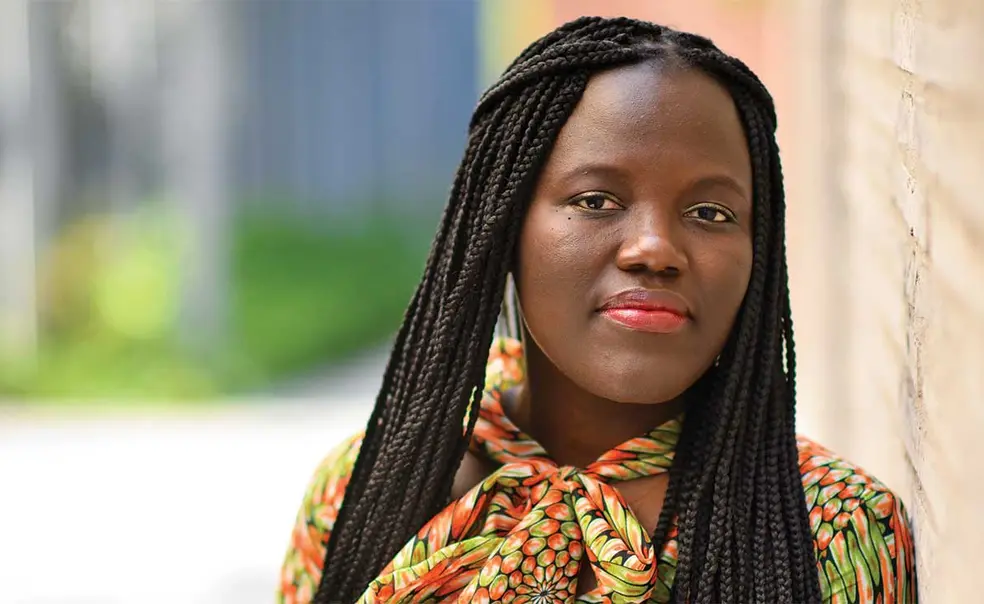Professor Adji Bousso Dieng Is Out to Change the World With AI
From Senegal, Dieng says her experiences instilled a sense of purpose that informs her research
This fall, Assistant Professor Adji Bousso Dieng became the first Black female faculty member in the engineering school’s 100-year history, and the first Black faculty member in the computer science department. She has spent the past few months settling into the University community, teaching a course on foundations of probabilistic modeling, and doing research in artificial intelligence.
For Dieng — and the students and colleagues celebrating her appointment — becoming an educator is at once an achievement and a sign of how much more progress is needed. Her parents never got the opportunity to complete school, and since leaving her hometown of Kaolack, Senegal, in 2006, she has never been taught by a Black lecturer. These experiences have instilled in her a sense of purpose that informs her research interests. “I’m looking to expand my work into science and health care, because you can do a lot with that,” she says. “I want to make a meaningful impact in Africa and also do things that could help make the world better.”
Dieng works in machine learning, a subset of artificial intelligence that seeks to derive knowledge and make decisions and predictions from the vast amounts of data generated by people and processes. Specifically, Dieng works on probabilistic modeling with unlabeled data, incorporating uncertainty into automated decision-making systems. This provides a measure of how “sure” a decision is, which in turn makes it easier to understand why a decision was made, permitting greater confidence in the predictions generated.
After winning a competitive STEM exam in high school, Dieng was awarded a scholarship to study at Télécom ParisTech in Palaiseau, France, where she earned a degree in engineering alongside a master’s in statistics from Cornell through a dual-degree program. She spent a year working for the World Bank before deciding to pursue a Ph.D. in statistics at Columbia University, largely because she felt it would enable her to do more impactful work. Her dissertation won the prestigious Savage Award, making her the first Black woman to receive the award since it was created in 1977. Following her 2020 graduation, she began a research fellowship at Google, and later that year, she was hired by Princeton.
Throughout her years in France and the U.S., Dieng has found herself constantly encountering negative stereotypes and misconceptions about Africa and Senegal in the media and in discourse — and she has been trying to clear them up. “You never see positive stories,” she says.
To provide another perspective, Dieng founded a nonprofit called The Africa I Know, to highlight Africans succeeding in STEM fields and to share the writings of African historians. Dieng was strongly influenced by her interactions with a similarly inspiring figure: Cheick Modibo Diarra, the first African to work at NASA as an astrophysicist. “We tell stories from our own perspective with the goal of inspiring young Africans, and in the process, educating the general public,” Dieng says. The organization has also launched the TAIK Education Fund to enable children from impoverished areas to attend school. “I believe every kid deserves education,” she says.












No responses yet